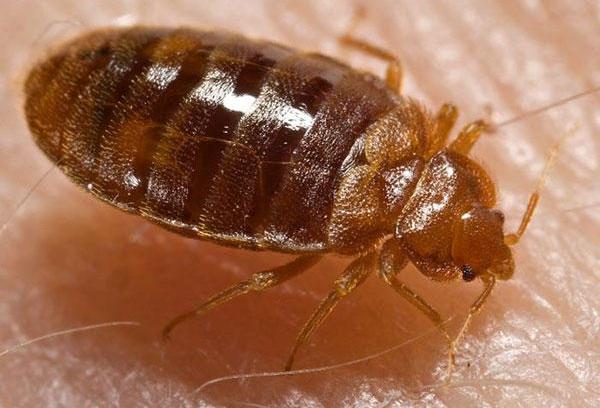
For effective ant control indoors, use sprays for quick kills on contact and baits that ants carry back to their colonies, providing longer-term control. Outdoors, focus on perimeter treatments with durable baits and granular insecticides to disrupt ants before they enter your home. Natural options like vinegar or essential oils can safely deter ants but may need regular application. Prevent infestations by sealing entry points and maintaining cleanliness. Following these strategies helps you manage ants safely and efficiently; further details can expand your approach.
Effective Indoor Ant Killer Products
When dealing with indoor ant infestations, choosing the right product is essential for effective control. You’ll want to select ant killers designed specifically for indoor use, which often come as sprays, baits, or powders.
Sprays provide immediate results by killing ants on contact, while baits attract ants to carry poison back to their colony, offering a longer-term solution. Powders can be applied in cracks and crevices where ants travel.
It’s important to follow the instructions carefully to guarantee safety and effectiveness. Using these targeted products helps maintain your indoor freedom without unnecessary exposure to harsh chemicals.
Top Outdoor Ant Control Solutions
Controlling ants outdoors requires a different approach than managing indoor infestations, as the environment and ant behavior vary considerably.
You’ll want to focus on perimeter treatments using durable ant baits and granular insecticides designed for outdoor use. These products target trails and entry points, disrupting colonies before they invade your home.
Additionally, maintaining a clean yard by removing food sources and standing water helps reduce ant activity.
Applying treatments around foundations, patios, and garden beds creates a protective barrier.
Natural and Eco-Friendly Ant Remedies
Although chemical treatments often offer quick results, many people prefer natural and eco-friendly ant remedies to minimize environmental impact and reduce exposure to harmful substances.
You can use common household items like vinegar, lemon juice, or diatomaceous earth to deter ants effectively. These substances disrupt ant trails or damage their exoskeletons without introducing toxins.
Essential oils such as peppermint or tea tree also repel ants and can be applied safely indoors. While these methods may require repeated application, they give you control over pest management without compromising your health or the environment.
How to Prevent Ant Infestations Year-Round
Since ants can enter your home through the smallest cracks and gaps, preventing infestations requires consistent attention to potential entry points and environmental factors.
Seal cracks around windows, doors, and foundations to block access. Keep your living areas clean by promptly wiping spills and storing food in airtight containers.
Reduce moisture by fixing leaks and ensuring proper drainage, as damp environments attract ants. Regularly inspect and maintain outdoor areas, trimming vegetation away from your home’s exterior.
Safety Tips for Using Ant Killers Around Pets and Children
Taking steps to keep ants from entering your home helps reduce the need for chemical treatments, but when you do use ant killers, it’s important to handle them carefully, especially around pets and children.
Follow these safety tips to maintain a secure environment:
- Store ant killers out of reach in locked cabinets or high shelves.
- Use baits and gels instead of sprays to minimize airborne exposure.
- Apply treatments only in targeted areas, avoiding common play spaces.
- Immediately clean up spills or residues to prevent accidental ingestion.
Frequently Asked Questions
How Do Ants Develop Resistance to Ant Killers?
You’ll find ants develop resistance when you rely on the same killer repeatedly; they adapt genetically, survive, and spread. To stay free, you’ve got to switch methods and keep them guessing, breaking their resistance cycle.
Can Ant Infestations Damage Home Structures?
Yes, ant infestations can damage your home. Carpenter ants, for example, burrow into wood, weakening structures. You’ll want to tackle infestations quickly to protect your freedom from costly repairs and maintain your home’s integrity.
What Is the Average Lifespan of Common Household Ants?
Common household ants usually live about 1 to 3 years, but worker ants often last only a few months. You can control their presence before they become a bigger problem, keeping your space free and open.
Are There Any Ant Species That Are Beneficial Indoors?
Yes, some ants indoors help by eating pests like termites or other harmful insects. You’ll find they naturally balance your home’s ecosystem, so sometimes it’s better to let them be rather than immediately trying to eliminate them.
How Quickly Do Ant Killers Work After Application?
You’ll usually see results within hours, but some ant killers take a day or two to fully work. It depends on the product and ant species, so don’t expect instant disappearance every time you spray.
Sheila is a seasoned technology writer and expert in the field of sustainable energy and transportation. As a lead writer for TeslaBel.com, she has spent the past decade providing readers with in-depth knowledge and analysis of the latest innovations in electric vehicles, solar energy, and cutting-edge technologies. With a degree in Electrical Engineering and a passion for the environment, Sheila brings a unique perspective to the world of green technology.



